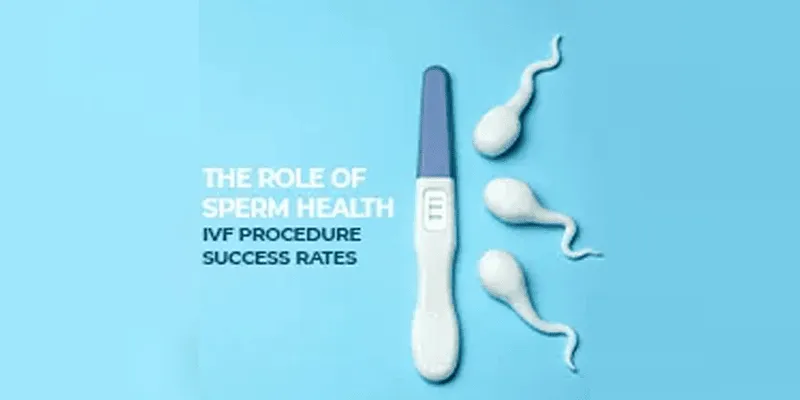The Role of Sperm Health in IVF Procedure Success Rates
November 25, 2023
In-vitro fertilisation (IVF) has become a widely accepted and effective treatment option for couples facing fertility challenges. Although many factors contribute to IVF success, one crucial element is often overlooked – sperm quality. In this article, we will explore the significance of sperm quality in IVF success rates and discuss ways to improve male fertility.
Understanding Sperm Quality
Sperm quality refers to the health and viability of sperm cells. It encompasses various factors such as sperm count, motility (movement), morphology (shape), volume, and overall vitality. Each of these factors plays a vital role in the ability of sperm cells to fertilise an egg successfully.
Effect of Sperm Quality on IVF Success?
Studies have shown that IVF success rates are directly influenced by sperm parameters such as count, motility, morphology, and DNA integrity. Higher-quality sperm have a better chance of successfully fertilising an egg and developing into a healthy embryo. Therefore, improving sperm quality can increase the chances of a successful outcome in an IVF procedure.
Also Read: Treatments For Men with Low Sperm Count
Factors Affecting Sperm Quality
Several factors can impact sperm quality, including:
- Lifestyle Choices: Unhealthy lifestyle habits such as smoking, excessive alcohol consumption, drug use, and a sedentary lifestyle can negatively affect sperm quality.
- Age: Advanced paternal age has been associated with decreased sperm quality. Although men can produce sperm throughout their lives, the quality may decline as they get older.
- Medical Conditions: Certain medical conditions like varicoceles (enlarged veins within the scrotum), hormonal imbalances, infections, and genetic disorders can affect sperm production and quality.
- Environmental Factors: Exposure to environmental toxins such as pesticides, heavy metals, radiation, and chemicals can have a detrimental effect on sperm quality.
- Stress: Chronic stress can disrupt hormonal balance and impact fertility in both men and women.
Improving Sperm Quality
Also Read: Diet to Increase Sperm Count
The following are some general tips that may help improve sperm quality before undergoing an IVF procedure:
- Maintain a Healthy Lifestyle: Quit smoking, limit alcohol consumption, maintain a healthy weight, exercise regularly, and follow a nutritious diet that includes fertility-boosting foods such as walnuts, spinach, tomatoes, and citrus fruits.
- Manage Stress: Engage in stress-reducing activities like yoga, meditation, or pursuing hobbies to promote emotional well-being.
- Limit Heat Exposure: High temperatures can negatively impact sperm production. Avoid hot tubs, saunas, tight-fitting underwear, and excessive cycling to prevent overheating in the testicles.
- Regular Exercise: Regular physical activity improves blood flow to the reproductive organs and promotes hormone balance.
In conclusion, understanding the importance of sperm quality in IVF success is crucial for couples undergoing fertility treatments. By making positive lifestyle changes, seeking medical assistance when needed, and exploring personalised treatment options at Apollo Fertility, couples can optimise their chances of achieving their dream of parenthood.
Sperm quality is assessed through a semen analysis, which evaluates various parameters such as sperm count, motility, morphology, and DNA integrity.
It is advisable to consult a fertility specialist as they can assess your situation, conduct necessary tests, and recommend appropriate treatment options.
It typically takes around 3 months for new sperm to mature. Therefore, lifestyle changes and interventions aimed at improving sperm quality may take several months to yield noticeable results.